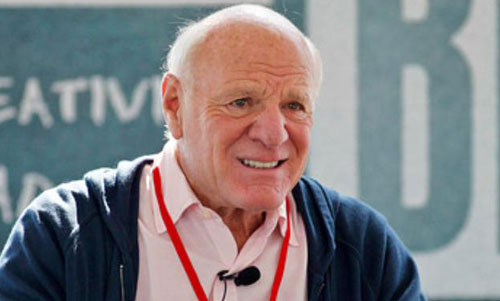
You may not have heard of Barry Diller or IAC, the sprawling conglomerate he founded, but you’ve definitely heard of the brands he owns. From Vimeo to Expedia to The Daily Beast to Match.com, IAC has fingers in all of the Web’s biggest markets. So when Diller decides to take on America’s big broadcasters, you know there’s going to be an interesting tussle.
On 1 March, a group of US broadcasters, including Fox and PBS, filed two separate suits against one of Diller’s companies. What has stirred up this hornets’ nest? A start-up named Aereo in which IAC is a major investor. Why are media giants suing a fledgling tech company? Aereo is essentially beating them at their own game.
For US$12/month, Aereo will stream all of America’s major TV channels to you via the Web. All you need is an Internet connection and a compatible device (which includes smartphones). Aereo is also a “cloud DVR” — a personal television recording device that operates entirely on the Web. So it gives you access to “your” TV, anywhere you happen to be in the world.
US federal law prohibits “retransmission” of television signals for profit, but Aereo has found an ingenious solution to this problem. It packs millions of tiny silicon aerials into its data centre, which is conveniently located near to where the TV signal is broadcast. When you subscribe to Aereo you are essentially renting one of these aerials from them.
As far as Diller and Aereo are concerned, sending your own TV signal to you via the Internet does not count as retransmission. The TV networks and cable companies — surprise, surprise — disagree.
Speaking at this year’s South By South West (SXSW) Interactive Festival, Diller was entirely unruffled by the big guns pointed at his business. In fact, he seems to welcome the battle, quipping that “one of the reasons I love it is it’s going to be a great fight”.
Diller recalls the birth of the VCR when all the media companies sued Sony on a very similar basis — essentially copyright infringement. “It went to the supreme court and, obviously, Sony won. [This case] will be tried, and that will be interesting, because a lot of principles will come out of that.”
For Diller, this is clearly the future of the industry. “The closed circle hegemony of cable, broadcaster, etc is going to break up over time, and people are going to access content a la carte… It’s the most radical [idea] — I’m always attracted to the radical.”
Diller doesn’t personalise the fight. “This is not some evil thing, this is absolutely predictable. The media companies have hegemony over everything and so they want to preserve that closed system. I understand that, but it can’t last.”
But what does annoy Diller is the fact that these big broadcasters “forgot a long time ago the value of the free licences that they use to make their billions”. To him, the spirit of the law is clear: broadcasters get free licences and for that right they are obliged to transmit their signal to people, regardless of where they are, as long as they have a receiver. “So long as you have an address, you have a right to public broadcasting.”
Why doesn’t Aereo just pay the broadcasters their retransmission fees and avoid the lawsuit? Diller scoffs at this suggestion. “When you get Radio Shack (an electronics retailer) to pay you a slice of profit for selling an aerial, we’ll pay you.”
Diller is bullish about the future of Aereo. “If this thing works we’re going to roll it out to … 75 to 100 major cities within a year.”
Whether or not Aereo wins its case, the genie is out of the bottle. Diller knows that, but the broadcasters clearly still need to realise it. — Alistair Fairweather, TechCentral
- Subscribe to our free daily newsletter
- Follow us on Twitter or on Google+ or on Facebook
- Visit our sister website, SportsCentral (still in beta)

